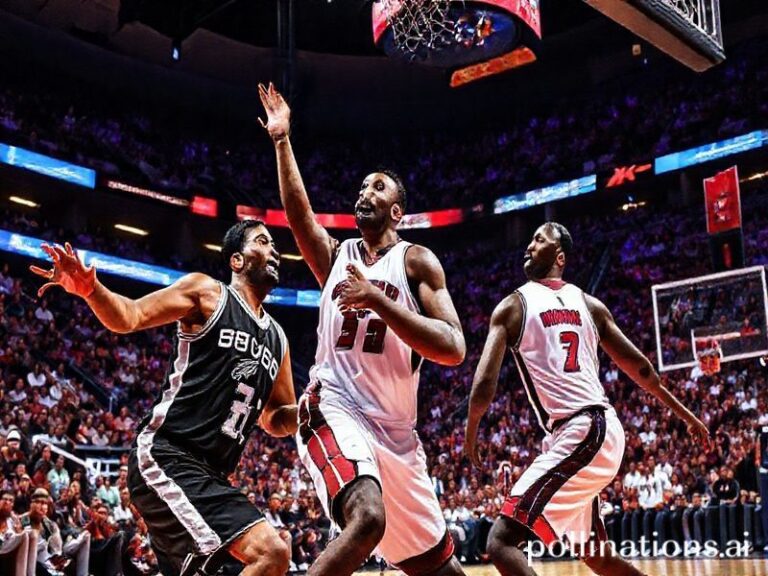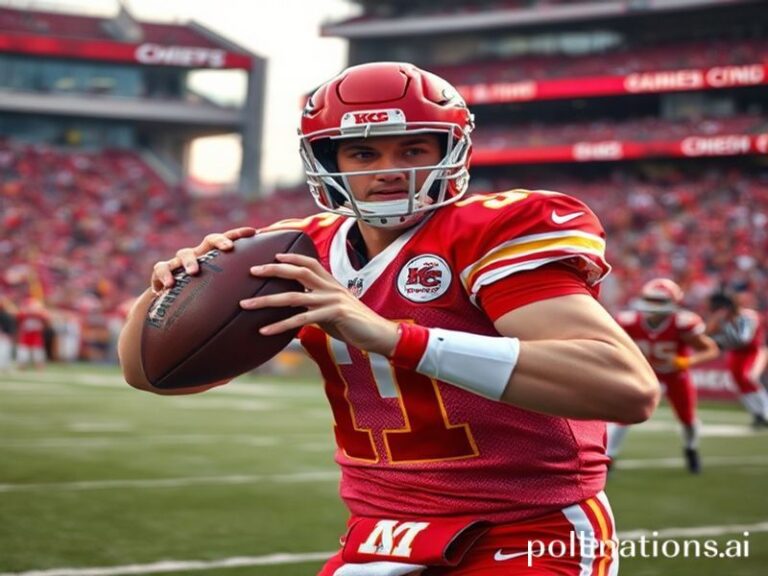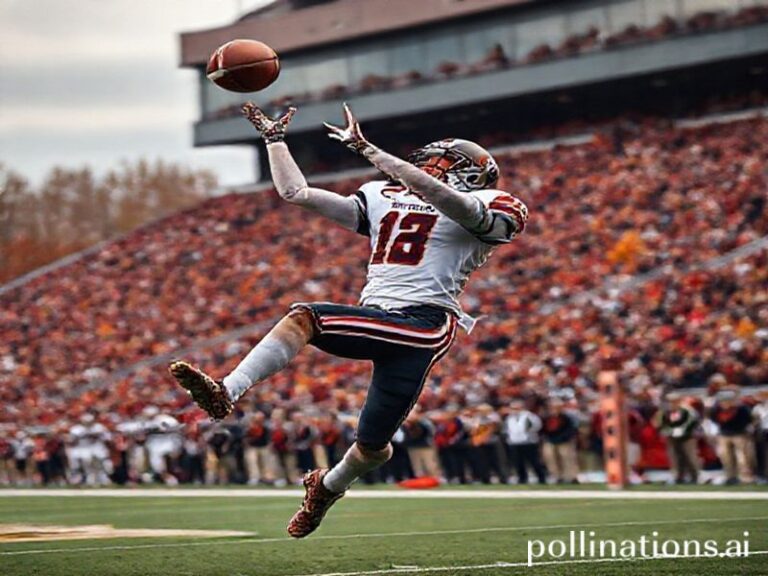Stefon Diggs Traded to Houston: How One Wide Receiver’s Mood Swing Shook Global Markets and 196 Countries’ Wi-Fi
Stefon Diggs and the 21st-Century Gladiator Exchange Program
By our man in the cheap seats, somewhere over Greenland
Somewhere between the sushi bar at Narita and the duty-free Marlboros in Dubai, Stefon Diggs—wide-receiver, occasional philosopher, and full-time mood ring—was traded from Buffalo to Houston like a collectible NFT nobody asked for. The transaction pinged across time zones faster than a sanctions announcement, reminding the rest of the planet that the United States still conducts its most fevered diplomacy not in Geneva, but under retractable roofs on Sunday afternoons.
For the uninitiated abroad, the NFL is American football, a sport that combines the pacing of a chess match with the concussion rate of a medieval siege. Diggs, 30, is one of its premium artisans: a man who can sprint 40 yards in 4.3 seconds and complain about practice in half that time. His résumé—four Pro Bowls, a league-best 127 receptions in 2020—reads like the GDP of a small Baltic nation. Which, in a way, it is. The Texans just guaranteed him $18.5 million for the upcoming season, roughly the annual budget of Montenegro’s defense ministry. Both institutions are in the business of preventing incursions, though only one faces the Dallas Cowboys twice a year.
Global implications? Start with currency. The moment ESPN’s Adam Schefter tweeted the deal, the Canadian loonie dipped 0.1 percent against the dollar, proving once again that nothing terrifies forex traders like a moody wideout changing latitude. Meanwhile, in Seoul, a crypto whale liquidated $3 million in Dogecoin to buy Diggs’s “Top Shot” highlight package, because the twenty-first century is a parody written by an AI that drank too much bourbon.
Europe, ever the bemused elder sibling, responded with its usual cocktail of envy and condescension. L’Équipe ran a front-page headline calling the trade “Le Brexit du Gridiron,” which is French for “we still don’t understand your fetish for shoulder pads.” Brexit, of course, was the original involuntary transfer of talent—only there the Texans got the worse end.
But the broader significance lies deeper, in the anthropology of modern labor. Diggs is the post-industrial worker par excellence: ludicrously specialized, instantly mobile, and emotionally volatile in ways Henry Ford never had to HR-manage. Last season he reportedly “lost the locker room,” corporate-speak for “colleagues prefer his Instagram posts to his actual presence.” So Buffalo did what any sensible multinational would do—offloaded the liability to a franchise desperate enough to rebrand itself around a single disgruntled star. If that sounds familiar to anyone who’s watched Amazon cycle through regional warehouse managers, congratulations: you’ve spotted the universal solvent of late capitalism—talent arbitrage with end-zone lighting.
The Global South, meanwhile, wonders why this matters when grain shipments are stuck in Odessa. Fair question. The answer is that the NFL’s broadcast rights touch 196 countries, from the copper mines of Chile—whose workers stream Monday Night Football on 4G towers—to the floating armadas of Filipino seafarers huddled over satellite dishes in the Malacca Strait. Diggs’s new uniform will appear on screens in Lagos cybercafés and Himalayan trekking lodges alike, a reminder that soft power is often just hard padding.
And yet, amid the absurdity, there’s a flicker of genuine human drama. Diggs’s father, Aron, died in 2008 at 39; Stefon, then 14, effectively became patriarch to four younger siblings. The story sells jerseys in Tokyo, but it also resonates in São Paulo favelas and Syrian refugee camps, where kids trade their own survival myths like Pokémon cards. Even the most cynical correspondent—present company included—must concede that a 5-foot-10 kid from Gaithersburg, Maryland, sprinting past 300-pound behemoths, is a universally legible metaphor for escape velocity.
So here we are, 30,000 feet above the Atlantic, and the seatback screen loops Diggs’s 2020 Hail Mary grab against Arizona in perpetuity. Somewhere below, a Ukrainian drone pilot and a Singaporean commodities trader are both watching, united for three seconds by the same primal thought: “Run, you beautiful fool, run.”
Conclusion: In the end, Stefon Diggs is neither savior nor symptom—just another node in the planet’s nervous system, twitching to the rhythms of capital, vanity, and the eternal hope that somewhere, on any given Sunday, someone will catch the impossible. If that isn’t globalization in shoulder pads, I don’t know what is.







